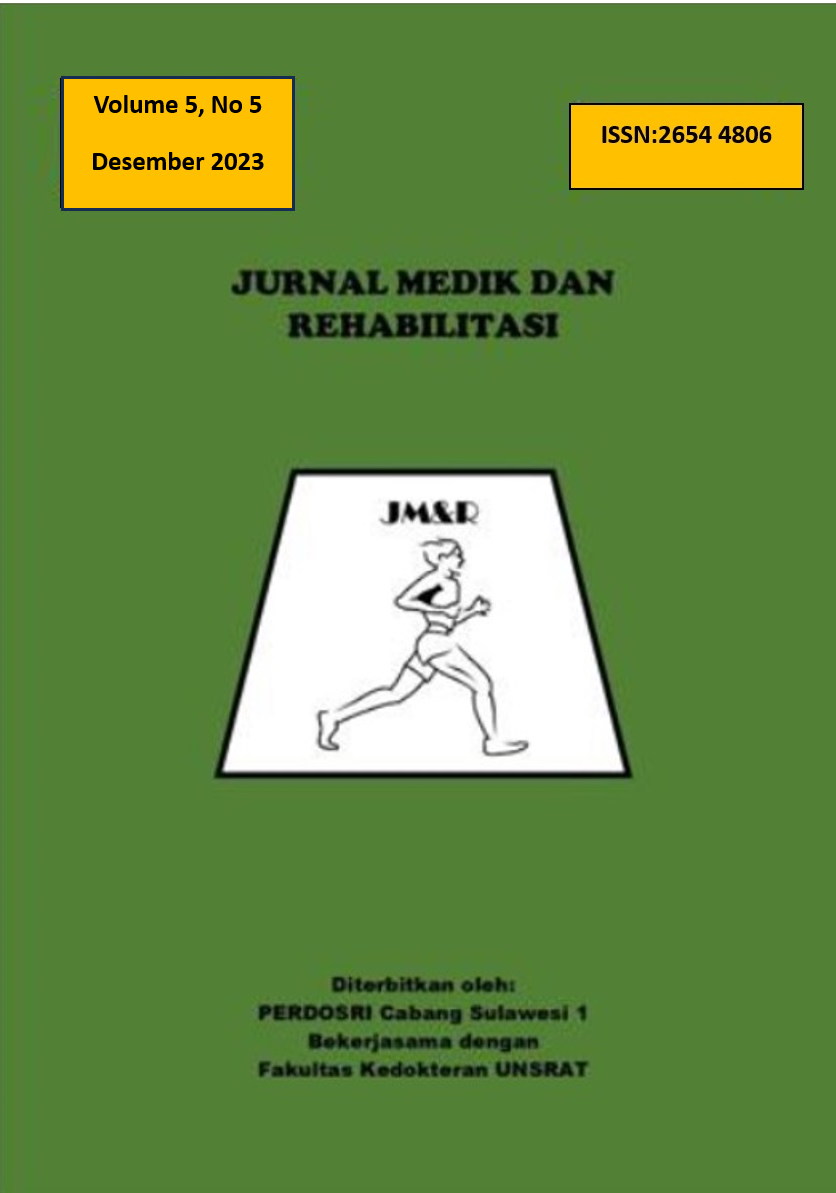REHABILITATION MANAGEMENT IN PATIENT WITH POST OPERATIVE CORONARY ARTERY BYPASS GRAFT (CABG) DUE TO CORONARY ARTERIAL DISEASE, CONGESTIVE HEART FAILURE FC II-III, SEQUELAE OF STROKE, AND CONTROLLED HYPERTENSION
Abstract
Cardiac rehabilitation is a comprehensive and multidisciplinary intervention that aims to improve the health and well-being of patients who have undergone Coronary Artery Bypass Grafting (CABG) surgery. This surgery involves rerouting blood flow around a blocked or damaged artery in the heart, thereby improving blood supply and reducing the risk of heart attack or other cardiovascular events. For individuals who have also experienced a chronic stroke, the challenges associated with post-CABG rehabilitation are compounded. Chronic stroke refers to a condition where damage to the brain has occurred over a long period of time, resulting in motor, sensory, and cognitive impairments that can significantly impact daily life. This condition can lead to decreased functional capacity, reduced mobility, and an increased risk of cardiovascular disease. When combined with the challenges of post-CABG recovery, chronic stroke patients require a tailored and comprehensive rehabilitation program that addresses their unique needs and challenges. The primary goal of cardiac rehabilitation in chronic stroke patients following CABG is to improve physical fitness and functional capacity, reduce the risk of cardiovascular events, and promote a healthy lifestyle.

